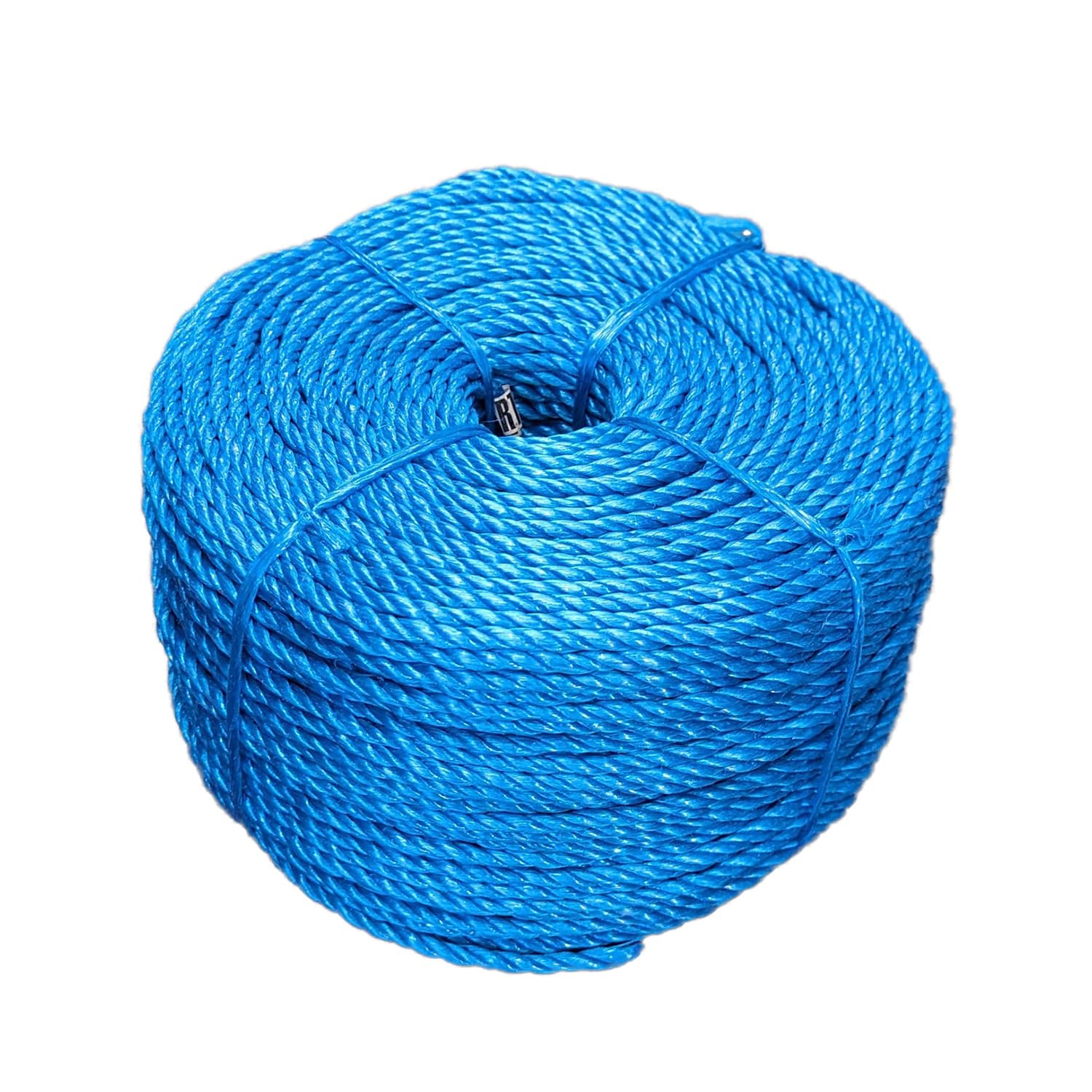Polypropylene Ropes
(12 Products)Polypropylene ropes are a type of synthetic cord material known for their incredible strength, flexibility, and water resistance. Often recognised for their ability to float, these ropes are widely used in marine, outdoor, and industrial settings. With an impressive resistance to mildew, alkali, and rot, polypropylene ropes are durable and well-suited for demanding environments. Whether you are seeking a rope for boating, gardening, or heavy-duty applications, polypropylene ropes are versatile, cost-effective, and reliable.
What is Polypropylene Rope?
Polypropylene rope is a synthetic cord made from polypropylene, a thermoplastic polymer. It’s typically a three-strand or multi-strand rope that is lightweight, flexible, and durable. The fibres are spun into strands that are twisted together to form the final rope. Its buoyant nature makes it ideal for water-related activities and applications where floating properties are beneficial.
Polypropylene ropes are known for their ability to maintain strength despite exposure to water, sunlight, and other harsh conditions. These ropes come in a range of thicknesses and strengths, making them suitable for a wide variety of tasks.
The rope is also typically resistant to mildew, chemicals, and moisture, which contributes to its long lifespan, even in environments that involve frequent exposure to the elements. Unlike natural fibres like cotton or hemp, polypropylene doesn’t absorb water, which allows the rope to maintain its integrity and strength when used in wet environments.
Additionally, it is resistant to rot, making it highly suited for marine and coastal applications. These ropes are often used for securing boats, lines for docks, and handling fishing nets.
Where Is Polypropylene Rope Used?
Polypropylene ropes are versatile and can be used in numerous applications across various fields. Here are some of the most common:
- Marine and Boating: Polypropylene rope is a go-to material for boating lines, dock ropes, anchor lines, and even fishing nets. Its buoyancy makes it perfect for floating on water, ensuring visibility and easy retrieval.
- Outdoor Activities: Whether it’s camping, hiking, or securing tents and tarps, polypropylene ropes are strong enough to hold weight but lightweight for easy packing and handling.
- Gardening and Landscaping: In the gardening world, these ropes are used for securing plants, creating trellises, or for basic tying tasks. Their weather resistance and flexibility make them ideal for outdoor gardening tasks.
- Industrial Use: Polypropylene ropes can be found in industries requiring material handling, lifting, and packaging. Its strength and flexibility are crucial for securing loads or creating tie-downs and pulleys.
- Recreational Uses: From rope swings to obstacle courses, polypropylene rope is a staple in many recreational setups. Its colour and durability make it an appealing choice for playgrounds and sports equipment.
Polypropylene Rope Benefits
- Buoyant: Polypropylene ropes float on water, making them ideal for marine, fishing, and boating applications.
- Lightweight: They are easy to handle, transport, and store without the need for heavy-duty gear.
- Rot-Proof: Polypropylene does not absorb water, making it resistant to rot and mildew, even in wet conditions.
- Durable: With a strong resistance to abrasion, weather, and UV degradation, polypropylene ropes last longer in outdoor environments.
- Chemical Resistance: Polypropylene ropes are resistant to a wide variety of chemicals, which makes them useful in industrial and marine settings.
- Affordable: Compared to natural fibres and other synthetic ropes, polypropylene ropes offer a cost-effective solution for many applications.
- Flexibility: The material is easy to knot, tie, and handle, making it an excellent choice for a variety of uses.
- Weather Resistant: Polypropylene ropes can withstand the harshest weather conditions without deteriorating.
- No Shrinking: These ropes maintain their size and shape, even when exposed to moisture and heat.
Frequently Asked Polypropylene Ropes Questions
How Long Does Polypropylene Rope Last?
With proper care and maintenance, polypropylene rope can last anywhere from 3 to 5 years when used outdoors. Its longevity depends on factors like exposure to UV rays, saltwater, and environmental conditions.
Does Polypropylene Rope Stretch?
Polypropylene rope does have a slight degree of stretch, but it is less elastic compared to ropes made from materials like nylon. This stretch can be useful in applications that require flexibility, but it’s important to understand the limitations.

